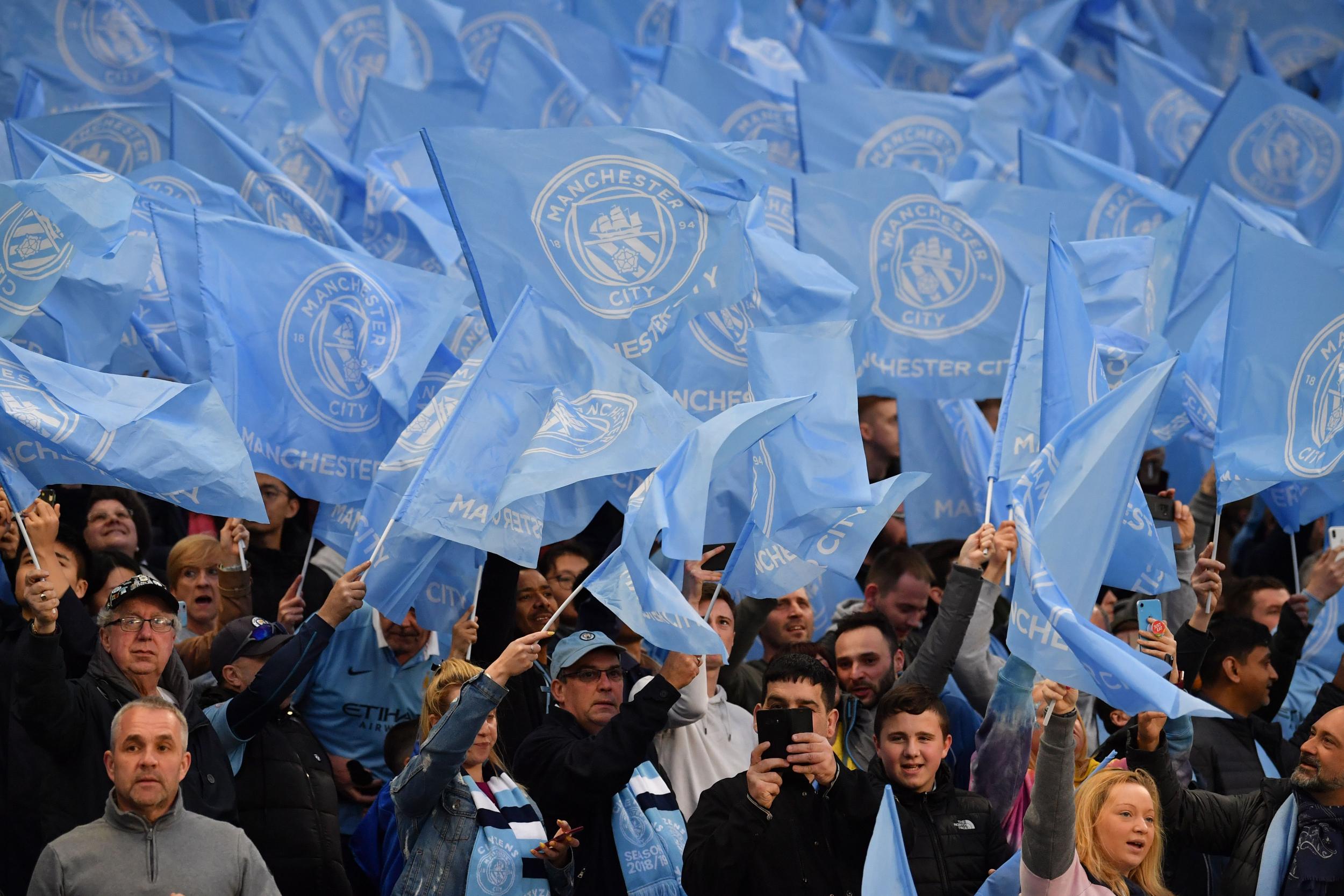The Independent's journalism is supported by our readers. When you purchase through links on our site, we may earn commission.
Man City Champions League ban: FFP allegations, punishments and cost explained
Everything you need to know about Uefa's investigation into City's FFP compliance

Your support helps us to tell the story
From reproductive rights to climate change to Big Tech, The Independent is on the ground when the story is developing. Whether it's investigating the financials of Elon Musk's pro-Trump PAC or producing our latest documentary, 'The A Word', which shines a light on the American women fighting for reproductive rights, we know how important it is to parse out the facts from the messaging.
At such a critical moment in US history, we need reporters on the ground. Your donation allows us to keep sending journalists to speak to both sides of the story.
The Independent is trusted by Americans across the entire political spectrum. And unlike many other quality news outlets, we choose not to lock Americans out of our reporting and analysis with paywalls. We believe quality journalism should be available to everyone, paid for by those who can afford it.
Your support makes all the difference.Manchester City could be facing a ban from the Champions League after Uefa escalated their investigation into potential breaches of Financial Fair Play (FFP) rules.
Yves Leterme, Uefa’s chief FFP investigator, has referred their case to the governing body’s adjudicatory chamber, who could ban the club from European competition.
City have launched an appeal against the decision with the Court of Arbitration for Sport and insist that they are “entirely confident of a positive outcome”.
What are the allegations?
City are accused of misleading Uefa over their compliance with FFP regulations, which prevent club owners from bankrolling excessive losses.
The main allegation is that City inflated sponsorship agreements, principally with Etihad, the Abu Dhabi state airline and club’s main sponsor.
Emails obtained by the Football Leaks website and published by Der Spiegel in November appeared to show that Etihad accounted for only £8m of a £67.5m sponsorship deal in 2013.
It is alleged that the remaining £59.5m was paid by Abu Dhabi United Group, the holding company which owns City.
In a statement released upon the initial leak of club emails, City refused to comment on “out-of-context materials purported to have been hacked or stolen” from the club.
“The attempt to damage the club’s reputation is clear,” it added.
Will they be banned from the Champions League?
In March, Uefa formally opened an investigation into City’s compliance with FFP, with expulsion from the Champions League as a potential sanction.
The club denied wrongdoing for the first time, claiming that the “accusation of financial irregularities are entirely false”.
On Thursday, the investigatory chamber (IC) of Uefa’s Club Financial Control Body (CFCB) concluded that City have a case to answer.
A final ruling and potential punishment will be decided by the CFCB’s adjudicatory chamber (AC) and a Champions League ban is a real possibility.
Before confirmation of the IC's decision came, The New York Times reported that Leterme would recommend City are banned from participating in the competition.
How have City responded to the threat of a ban?
City described themselves as “disappointed, but regrettably not surprised” by the decision of IC chief investigator Leterme.
Referring to The New York Times report, the club said: “The leaks to media over the last week are indicative of the process that has been overseen by Mr. Leterme.
“Manchester City is entirely confident of a positive outcome when the matter is considered by an independent judicial body,” it added.
City reiterated that the accusation of financial irregularity was “entirely false” and claimed the IC had ignored a “comprehensive body of irrefutable evidence”.
“The decision contains mistakes, misinterpretations and confusions fundamentally borne out of a basic lack of due process,” the statement added.
“There remain significant unresolved matters raised by Manchester City FC as part of what the club has found to be a wholly unsatisfactory, curtailed, and hostile process.”

When would a ban come into force?
City have appealed the decision to CAS, meaning that exclusion from next season’s Champions League is extremely unlikely.
Any punishment would probably come into force for the 2020-21 season – at the end of which Pep Guardiola’s current contract is set to expire.
Guardiola is yet to win the Champions League with City and, if banned for the 2020-21 campaign, next year could be his final opportunity.
What would happen to the Premier League’s four Champions League spots?
The Premier League would retain all four of its automatic places in the Champions League group stage in spite of any City ban.
If a ban applied to the 2020-21 competition and City finished inside the top four next season, the fourth qualifying spot would move down to fifth place.
If City’s ban applied to the 2019-20 Champions League, fifth-placed Arsenal would qualify, regardless of whether they win the forthcoming Europa League final.

How much would a ban cost City financially?
Participation in the Champions League is an important revenue stream for all clubs that regularly compete in the competition.
Last year, City earned approximately £55.7m by reaching the quarter-final stage. An estimated £62.3m can be expected from this year’s run to the last eight.
Those figures only represent money directly earned from Uefa for Champions League participation. They do not include the increased matchday revenues that come with playing European games.
Without money earned from participating the Champions League, City would not have made a £10.4m profit in 2017-18 and would have instead suffered a significant loss.
Are there other potential punishments?
Exclusion from Uefa competitions is the “atomic bomb” of FFP punishments, as the late Jean-Luc Dehaene, the first chief investigator of CFCB, said in 2011.
Sanctions range from official warnings and fines to restrictions on squad registration and exclusion from competition.
Uefa could yet decide against a Champions League ban and instead settle on a less severe punishment, while still being seen to enforce FFP regulations.
Have City been punished for FFP violations before?
In 2014, Uefa fined City £49m – £32m of which was suspended – for breaching FFP rules. City’s squad for the 2014-15 season was also limited to 21 players, cut down from 25.
Uefa ultimately did not charge the suspended £32m as City complied with operational and financial measures agreed as part of the punishment.

Are City subject to other investigations?
Including Uefa’s current FFP case against City, the club are subject to investigations by four separate football authorities.
Fifa are understood to be investigating allegations that City breached rules on the recruitment of young players.
City could be handed a one-year transfer ban if found guilty of wrongdoing. Chelsea received the same punishment earlier this year, subject to appeal.
World football’s governing body are also investigating City’s links to Danish club FC Nordsjaelland as a potential violation of third-party ownership rules.
The Premier League are investigating City’s compliance with the league’s own FFP regulations, as well rules around academy player recruitment and third-party ownership.
The Football Association, meanwhile, is probing City’s signing of Jadon Sancho as a 14-year-old from Watford. City deny all and any allegations of wrongdoing.
Join our commenting forum
Join thought-provoking conversations, follow other Independent readers and see their replies
Comments